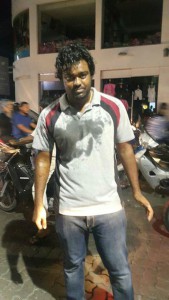Politicians from the United Kingdom and India this week continued to voice concerns over former President Mohamed Nasheed’s 13 year jail term for terrorism offences.
“We have a number of serious concerns about increasing political tensions in the Maldives and the arrest of former President Nasheed,” Minister of State for the Foreign and Commonwealth Office Hugo Swire told parliament this week.
Meanwhile, Indian diplomats have called the trial a foregone conclusion, while the French government has added its voice to growing international concern over the trial.
On March 16, UK Conservative Party MP Geoffrey Clifton-Brown questioned Swire about discussions held with Maldives foreign minister Dunya Maumoon regarding Nasheed’s rushed trial.
In response, Swire said the trial was not conducted in “accordance with due legal procedure.”
“Despite calls from the international community for due process to be followed, we are concerned that the former President’s trial has not been conducted in a transparent and impartial manner nor in accordance with due legal process,” he added.
Last week, Lord Alton of Liverpool asked the UK government for its assessment of the Criminal Court’s decision to deny Nasheed rights of appeal in relation to his initial arrest, and asked what discussions had taken place with the Commonwealth over the rule of law in the Maldives.
Conservative peer Baroness Joyce Anelay referred to Swire’s statements expressing concern over irregularities in Nasheed’s trial, saying the UK continues to monitor the situation closely.
“It is important for international confidence in Maldives that Mr Nasheed, like all other citizens, is seen to be enjoying due legal process and respect for his fundamental rights,” she said.
International concern grows
Nasheed was charged with terrorism over the military’s detention of Criminal Court Chief Judge Abdulla Mohamed in January 2012. The Criminal Court’s refusal to allow Nasheed legal counsel, adequate time to prepare defence, or to hear defence witnesses has caused international concern.
The United States, United Kingdom, and the European Union expressed concern with the lack of due process, while Amnesty International has said Nasheed’s conviction “after a deeply flawed and politically motivated trial is a travesty of justice.”
The French Embassy for Sri Lanka and the Maldives has been the latest to join the increasing international chorus of concern.
“France wishes to reiterate the importance of the right to a fair trial, which is a founding principle of democracy. We call on the Maldivian government to stand by its international commitments in this field,” a statement issued on Wednesday read.
Meanwhile, several Indian Diplomats told India’s Economic Times that the outcome of the trial had been a foregone conclusion, with the verdict written long before Nasheed was arrested and charged with terrorism.
“Every hearing at the court has been a blow to the rule of law,” said an unnamed Indian official.
“It is apparent that Yameen’s government, despite being seen as strong and stable, has seeds of instability within itself due to Yameen’s narrow outlook which has led to sustained efforts on the part of his coterie to neutralize other potential power centres and prospective threats,” the official said.
Government defends trial
Foreign minister Dunya Maumoon, at a press conference in Colombo on Monday (March 16), called upon India and Sri Lanka to defend the Maldives from “unjust criticism” from the international community.
Dunya and Attorney General Mohamed Anil maintained the trial was fair and just, insisting that the government does not interfere with the judiciary.
Arresting Judge Abdulla was a “serious crime,” Dunya said.
“We feel, that some people are a lot stricter on us because we are a small nation,” said Dunya. “There are countries with bigger issues than the Maldives.”
Dunya has previously condemned international statements of concern, stating: “Those who prefer to issue public statements about an on-going legal case, or on a domestic political situation, are advised to do a basic fact-check, before bandwagoning on to accusations made by a political party.”
In a statement issued last week, Dunya said that President Abdulla Yameen’s administration “will not take instructions from a foreign government on any issue in governing the country.”
President Abdulla Yameen has meanwhile called on all parties to respect the Criminal Court’s verdict.
In a statement released by the President’s Office on Sunday (March 15), President Yameen noted that the opposition leader has “a constitutionally guaranteed right of appeal” to challenge his conviction on terrorism charges at the High Court.
The Human Rights Commission of Maldives said the former president was denied fundamental rights that guarantee a fair trial in line with the Maldives’ obligations under the International Covenant on Civil and Political Rights (ICCPR).
Moreover, human rights NGO Maldivian Democracy Network urged the UN apecial rapporteur on the independence of judges to intervene in order to prevent a “slide back to autocracy,” whilst Transparency Maldives expressed “grave concern”, stressing that Nasheed was denied legal representation, the right to appeal, and sufficient time to mount a defence.
Related to this story
Former President Nasheed found guilty of terrorism, sentenced to 13 years in prison
“This is not a court of law. This is injustice,” Nasheed tells the Criminal Court
US, EU, and UK concerned over lack of due process in Nasheed trial
Foreigners cannot meddle in domestic affairs, declares President Yameen
Global change makers demand a fair trial for Nasheed
Likes (1)Dislikes
(1)Dislikes (0)
(0) 

